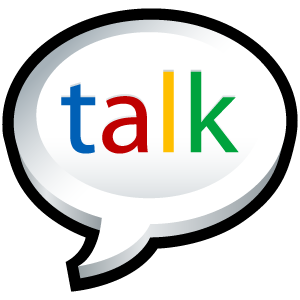 Business lunches are best left to get to know each other and to begin to build a flow of a relationship. It is a time to set some common goals in an informal way. Some pitfalls to avoid are not checking in with the client regarding their time guidelines, such as the time to meet and the length of time to meet. Be sure to consider where they might like to eat. Choose a place with a relaxing setting, that is quiet enough for a conversation, and can accommodate any dietary considerations they may have. Invitations must have been sent based on their scheduling needs. Conversation is light. Talk business only if the guest brings it up in conversation. Controversial subjects are best avoided.
Business lunches are best left to get to know each other and to begin to build a flow of a relationship. It is a time to set some common goals in an informal way. Some pitfalls to avoid are not checking in with the client regarding their time guidelines, such as the time to meet and the length of time to meet. Be sure to consider where they might like to eat. Choose a place with a relaxing setting, that is quiet enough for a conversation, and can accommodate any dietary considerations they may have. Invitations must have been sent based on their scheduling needs. Conversation is light. Talk business only if the guest brings it up in conversation. Controversial subjects are best avoided.
 Changing business climates causes tremendous movement in organizations. Some business are merging, some are reducing their number of employees, others are being sold to another group. It is critically important in these times to have and to develop personal capital. Personal/Professional capital has many elements. The most important factor is who knows you. Who can be one of your champions? Champions are individuals who will recommend you as a go-to person for high-profile projects, help you grow as professional, and help you succeed in view of the decision makers. Personal capital also increases when you volunteer for projects and your input and assistance results in success.
Changing business climates causes tremendous movement in organizations. Some business are merging, some are reducing their number of employees, others are being sold to another group. It is critically important in these times to have and to develop personal capital. Personal/Professional capital has many elements. The most important factor is who knows you. Who can be one of your champions? Champions are individuals who will recommend you as a go-to person for high-profile projects, help you grow as professional, and help you succeed in view of the decision makers. Personal capital also increases when you volunteer for projects and your input and assistance results in success.
Posted on 19 November 2019 Comments (0)
Tags: Anna's Posts, Attitude, Behaviors, Brand Impact, Business Social Etiquette, Career, Career Builders, Civility, Coaching, communication, Critical Thinking, Culture, Emtional Intelligence
 Honesty is the best policy—at the right time. Being honest at the wrong time usually leads to friction and hurt feelings. Working with people who feel honesty is the best policy – even in the middle of difficult situations – I have witnessed that it has not always helped their careers. Instead, most often being honest at the wrong time has hurt their chances of upward movement.
Honesty is the best policy—at the right time. Being honest at the wrong time usually leads to friction and hurt feelings. Working with people who feel honesty is the best policy – even in the middle of difficult situations – I have witnessed that it has not always helped their careers. Instead, most often being honest at the wrong time has hurt their chances of upward movement.
 Recently I attended a family function celebration. When some family members were asked to speak, they did not know what to say about the guests of honor. Always be ready to speak at a moment’s notice. Start by either talking about the reason for the event’s occasion (ex. today my parents are celebrating a milestone anniversary) or tell a story that ties into the celebration (ex. we were just looking at their wedding photos together). Wrap up your brief talk with a sentence related to moving forward after the occasion (ex. they have had many beautiful years of marriage, may they have many more ahead of them). Talking for less than a minute is too short; anything more than a minute and a half too long.
Recently I attended a family function celebration. When some family members were asked to speak, they did not know what to say about the guests of honor. Always be ready to speak at a moment’s notice. Start by either talking about the reason for the event’s occasion (ex. today my parents are celebrating a milestone anniversary) or tell a story that ties into the celebration (ex. we were just looking at their wedding photos together). Wrap up your brief talk with a sentence related to moving forward after the occasion (ex. they have had many beautiful years of marriage, may they have many more ahead of them). Talking for less than a minute is too short; anything more than a minute and a half too long.
 Arriving on time or early to a commitment you’ve made is a key element of being a true professional. Recently, an organization I was working with told me that one of their major complaints was about people who were always late—whether to work, meetings, or interviews. Some people think that being late indicates they have high demands on their time (which may be true). However, it shows a lack of respect for the individuals they keep waiting and the time those individuals are wasting while waiting. Being late discounts a person’s professionalism and any capital, they may have previously earned.
Arriving on time or early to a commitment you’ve made is a key element of being a true professional. Recently, an organization I was working with told me that one of their major complaints was about people who were always late—whether to work, meetings, or interviews. Some people think that being late indicates they have high demands on their time (which may be true). However, it shows a lack of respect for the individuals they keep waiting and the time those individuals are wasting while waiting. Being late discounts a person’s professionalism and any capital, they may have previously earned.
 The term “RSVP” is the abbreviation of the French phrase Réspondez s’il vous plait. It means “Please respond” – and it seems to be a dying habit. For years it was taken for granted that people would respond. Today, it’s a rarity to receive a response to an invitation. Non-responses are typical. Recently, I attended an event where the host had to track down invitees who had not responded. Why the rudeness? Not RSVPing shows a lack of etiquette and courtesy. It is good manners to respond within 24 hours of receiving the invite—even if just to say that you are not sure you are able to attend. After receiving the email invite regarding the recent event, I let the host know I might not be able to attend due to having a conflict with another event. The host was thrilled to receive the “maybe”. True professionals respond to their emails within 24 hours. One organization’s CEO has the firm rule that her staff members answer communications within 24 hours. It is a good rule for individuals and for businesses.
The term “RSVP” is the abbreviation of the French phrase Réspondez s’il vous plait. It means “Please respond” – and it seems to be a dying habit. For years it was taken for granted that people would respond. Today, it’s a rarity to receive a response to an invitation. Non-responses are typical. Recently, I attended an event where the host had to track down invitees who had not responded. Why the rudeness? Not RSVPing shows a lack of etiquette and courtesy. It is good manners to respond within 24 hours of receiving the invite—even if just to say that you are not sure you are able to attend. After receiving the email invite regarding the recent event, I let the host know I might not be able to attend due to having a conflict with another event. The host was thrilled to receive the “maybe”. True professionals respond to their emails within 24 hours. One organization’s CEO has the firm rule that her staff members answer communications within 24 hours. It is a good rule for individuals and for businesses.
 When preparing interviewees, I often must stress the critical need for their resumes to be crisp and clear. The resumes that stand out are the ones that reflect your accomplishments and how you achieved them. For example, the leader of a sales team may state on his or her resume that the team generated X amount of revenue, exceeding expectations of monthly goals. A strong resume states not only your skills, but the impact you can make on the organization. Be sure your resume and talking points make the individual interviewing you realize that your skills are a good fit for the organization.
When preparing interviewees, I often must stress the critical need for their resumes to be crisp and clear. The resumes that stand out are the ones that reflect your accomplishments and how you achieved them. For example, the leader of a sales team may state on his or her resume that the team generated X amount of revenue, exceeding expectations of monthly goals. A strong resume states not only your skills, but the impact you can make on the organization. Be sure your resume and talking points make the individual interviewing you realize that your skills are a good fit for the organization.
 Shirt collars have gone back and forth—from collars with buttons to collars without buttons. There are several advantages to wearing a shirt with a button-down collar. Collars that button down are easier to wear and look tidier. They also are easier to maintain. Collars without buttons look more casual. They can also look sloppy when the collar flops down. Collars without buttons require more caretaking, such as ironing and spray starch, to remain crisp looking. When in doubt, choose a shirt with a button-down collar.
Shirt collars have gone back and forth—from collars with buttons to collars without buttons. There are several advantages to wearing a shirt with a button-down collar. Collars that button down are easier to wear and look tidier. They also are easier to maintain. Collars without buttons look more casual. They can also look sloppy when the collar flops down. Collars without buttons require more caretaking, such as ironing and spray starch, to remain crisp looking. When in doubt, choose a shirt with a button-down collar.
 I have a Dell laptop and a MacBook Air laptop. Microsoft Office products are available for PC and Apple computers. With the Dell, I use Office 365—a subscription-based version of the Microsoft Office suite. With the MacBook Air, I use Office for Mac. First introduced in 1989, Office for Mac has become virtually the same as running a Microsoft Office product on a PC. Both products are readily available. In a shopping center near me, the Microsoft store and the Apple store are across the way from each other. People have long considered Apple to offer superior service in helping the consumer manage and troubleshoot their products. Apple’s chat service is especially helpful. Microsoft has stepped up their service and offers a program called Assure. Both companies have learned the value of good customer service and made their products compatible for the user.
I have a Dell laptop and a MacBook Air laptop. Microsoft Office products are available for PC and Apple computers. With the Dell, I use Office 365—a subscription-based version of the Microsoft Office suite. With the MacBook Air, I use Office for Mac. First introduced in 1989, Office for Mac has become virtually the same as running a Microsoft Office product on a PC. Both products are readily available. In a shopping center near me, the Microsoft store and the Apple store are across the way from each other. People have long considered Apple to offer superior service in helping the consumer manage and troubleshoot their products. Apple’s chat service is especially helpful. Microsoft has stepped up their service and offers a program called Assure. Both companies have learned the value of good customer service and made their products compatible for the user.
 Body language, meaning how we stand, the way we walk in a room, and the pacing of our steps, all speak to our confidence. In my favorite movie, Star Trek, I noticed the difference between the way Jim Kirk (now played by Chris Pine) walked onto the bridge and the way Dr. Spock did it. Despite the difference in approaches, both characters radiated an air of quiet confidence.
Body language, meaning how we stand, the way we walk in a room, and the pacing of our steps, all speak to our confidence. In my favorite movie, Star Trek, I noticed the difference between the way Jim Kirk (now played by Chris Pine) walked onto the bridge and the way Dr. Spock did it. Despite the difference in approaches, both characters radiated an air of quiet confidence.
Watch the difference between first class and premier status boarding passengers the next time you people watch at the airport. Think about how you compare and who might you select as a role model.
 Business lunches are best left to get to know each other and to begin to build a flow of a relationship. It is a time to set some common goals in an informal way. Some pitfalls to avoid are not checking in with the client regarding their time guidelines, such as the time to meet and the length of time to meet. Be sure to consider where they might like to eat. Choose a place with a relaxing setting, that is quiet enough for a conversation, and can accommodate any dietary considerations they may have. Invitations must have been sent based on their scheduling needs. Conversation is light. Talk business only if the guest brings it up in conversation. Controversial subjects are best avoided.
Business lunches are best left to get to know each other and to begin to build a flow of a relationship. It is a time to set some common goals in an informal way. Some pitfalls to avoid are not checking in with the client regarding their time guidelines, such as the time to meet and the length of time to meet. Be sure to consider where they might like to eat. Choose a place with a relaxing setting, that is quiet enough for a conversation, and can accommodate any dietary considerations they may have. Invitations must have been sent based on their scheduling needs. Conversation is light. Talk business only if the guest brings it up in conversation. Controversial subjects are best avoided.

 Changing business climates causes tremendous movement in organizations. Some business are merging, some are reducing their number of employees, others are being sold to another group. It is critically important in these times to have and to develop personal capital. Personal/Professional capital has many elements. The most important factor is who knows you. Who can be one of your champions? Champions are individuals who will recommend you as a go-to person for high-profile projects, help you grow as professional, and help you succeed in view of the decision makers. Personal capital also increases when you volunteer for projects and your input and assistance results in success.
Changing business climates causes tremendous movement in organizations. Some business are merging, some are reducing their number of employees, others are being sold to another group. It is critically important in these times to have and to develop personal capital. Personal/Professional capital has many elements. The most important factor is who knows you. Who can be one of your champions? Champions are individuals who will recommend you as a go-to person for high-profile projects, help you grow as professional, and help you succeed in view of the decision makers. Personal capital also increases when you volunteer for projects and your input and assistance results in success. Honesty is the best policy—at the right time. Being honest at the wrong time usually leads to friction and hurt feelings. Working with people who feel honesty is the best policy – even in the middle of difficult situations – I have witnessed that it has not always helped their careers. Instead, most often being honest at the wrong time has hurt their chances of upward movement.
Honesty is the best policy—at the right time. Being honest at the wrong time usually leads to friction and hurt feelings. Working with people who feel honesty is the best policy – even in the middle of difficult situations – I have witnessed that it has not always helped their careers. Instead, most often being honest at the wrong time has hurt their chances of upward movement. Recently I attended a family function celebration. When some family members were asked to speak, they did not know what to say about the guests of honor. Always be ready to speak at a moment’s notice. Start by either talking about the reason for the event’s occasion (ex. today my parents are celebrating a milestone anniversary) or tell a story that ties into the celebration (ex. we were just looking at their wedding photos together). Wrap up your brief talk with a sentence related to moving forward after the occasion (ex. they have had many beautiful years of marriage, may they have many more ahead of them). Talking for less than a minute is too short; anything more than a minute and a half too long.
Recently I attended a family function celebration. When some family members were asked to speak, they did not know what to say about the guests of honor. Always be ready to speak at a moment’s notice. Start by either talking about the reason for the event’s occasion (ex. today my parents are celebrating a milestone anniversary) or tell a story that ties into the celebration (ex. we were just looking at their wedding photos together). Wrap up your brief talk with a sentence related to moving forward after the occasion (ex. they have had many beautiful years of marriage, may they have many more ahead of them). Talking for less than a minute is too short; anything more than a minute and a half too long. Arriving on time or early to a commitment you’ve made is a key element of being a true professional. Recently, an organization I was working with told me that one of their major complaints was about people who were always late—whether to work, meetings, or interviews. Some people think that being late indicates they have high demands on their time (which may be true). However, it shows a lack of respect for the individuals they keep waiting and the time those individuals are wasting while waiting. Being late discounts a person’s professionalism and any capital, they may have previously earned.
Arriving on time or early to a commitment you’ve made is a key element of being a true professional. Recently, an organization I was working with told me that one of their major complaints was about people who were always late—whether to work, meetings, or interviews. Some people think that being late indicates they have high demands on their time (which may be true). However, it shows a lack of respect for the individuals they keep waiting and the time those individuals are wasting while waiting. Being late discounts a person’s professionalism and any capital, they may have previously earned. The term “RSVP” is the abbreviation of the French phrase Réspondez s’il vous plait. It means “Please respond” – and it seems to be a dying habit. For years it was taken for granted that people would respond. Today, it’s a rarity to receive a response to an invitation. Non-responses are typical. Recently, I attended an event where the host had to track down invitees who had not responded. Why the rudeness? Not RSVPing shows a lack of etiquette and courtesy. It is good manners to respond within 24 hours of receiving the invite—even if just to say that you are not sure you are able to attend. After receiving the email invite regarding the recent event, I let the host know I might not be able to attend due to having a conflict with another event. The host was thrilled to receive the “maybe”. True professionals respond to their emails within 24 hours. One organization’s CEO has the firm rule that her staff members answer communications within 24 hours. It is a good rule for individuals and for businesses.
The term “RSVP” is the abbreviation of the French phrase Réspondez s’il vous plait. It means “Please respond” – and it seems to be a dying habit. For years it was taken for granted that people would respond. Today, it’s a rarity to receive a response to an invitation. Non-responses are typical. Recently, I attended an event where the host had to track down invitees who had not responded. Why the rudeness? Not RSVPing shows a lack of etiquette and courtesy. It is good manners to respond within 24 hours of receiving the invite—even if just to say that you are not sure you are able to attend. After receiving the email invite regarding the recent event, I let the host know I might not be able to attend due to having a conflict with another event. The host was thrilled to receive the “maybe”. True professionals respond to their emails within 24 hours. One organization’s CEO has the firm rule that her staff members answer communications within 24 hours. It is a good rule for individuals and for businesses. Shirt collars have gone back and forth—from collars with buttons to collars without buttons. There are several advantages to wearing a shirt with a button-down collar. Collars that button down are easier to wear and look tidier. They also are easier to maintain. Collars without buttons look more casual. They can also look sloppy when the collar flops down. Collars without buttons require more caretaking, such as ironing and spray starch, to remain crisp looking. When in doubt, choose a shirt with a button-down collar.
Shirt collars have gone back and forth—from collars with buttons to collars without buttons. There are several advantages to wearing a shirt with a button-down collar. Collars that button down are easier to wear and look tidier. They also are easier to maintain. Collars without buttons look more casual. They can also look sloppy when the collar flops down. Collars without buttons require more caretaking, such as ironing and spray starch, to remain crisp looking. When in doubt, choose a shirt with a button-down collar. I have a Dell laptop and a MacBook Air laptop. Microsoft Office products are available for PC and Apple computers. With the Dell, I use Office 365—a subscription-based version of the Microsoft Office suite. With the MacBook Air, I use Office for Mac. First introduced in 1989, Office for Mac has become virtually the same as running a Microsoft Office product on a PC. Both products are readily available. In a shopping center near me, the Microsoft store and the Apple store are across the way from each other. People have long considered Apple to offer superior service in helping the consumer manage and troubleshoot their products. Apple’s chat service is especially helpful. Microsoft has stepped up their service and offers a program called Assure. Both companies have learned the value of good customer service and made their products compatible for the user.
I have a Dell laptop and a MacBook Air laptop. Microsoft Office products are available for PC and Apple computers. With the Dell, I use Office 365—a subscription-based version of the Microsoft Office suite. With the MacBook Air, I use Office for Mac. First introduced in 1989, Office for Mac has become virtually the same as running a Microsoft Office product on a PC. Both products are readily available. In a shopping center near me, the Microsoft store and the Apple store are across the way from each other. People have long considered Apple to offer superior service in helping the consumer manage and troubleshoot their products. Apple’s chat service is especially helpful. Microsoft has stepped up their service and offers a program called Assure. Both companies have learned the value of good customer service and made their products compatible for the user.  Body language, meaning how we stand, the way we walk in a room, and the pacing of our steps, all speak to our confidence. In my favorite movie, Star Trek, I noticed the difference between the way Jim Kirk (now played by Chris Pine) walked onto the bridge and the way Dr. Spock did it. Despite the difference in approaches, both characters radiated an air of quiet confidence.
Body language, meaning how we stand, the way we walk in a room, and the pacing of our steps, all speak to our confidence. In my favorite movie, Star Trek, I noticed the difference between the way Jim Kirk (now played by Chris Pine) walked onto the bridge and the way Dr. Spock did it. Despite the difference in approaches, both characters radiated an air of quiet confidence.

